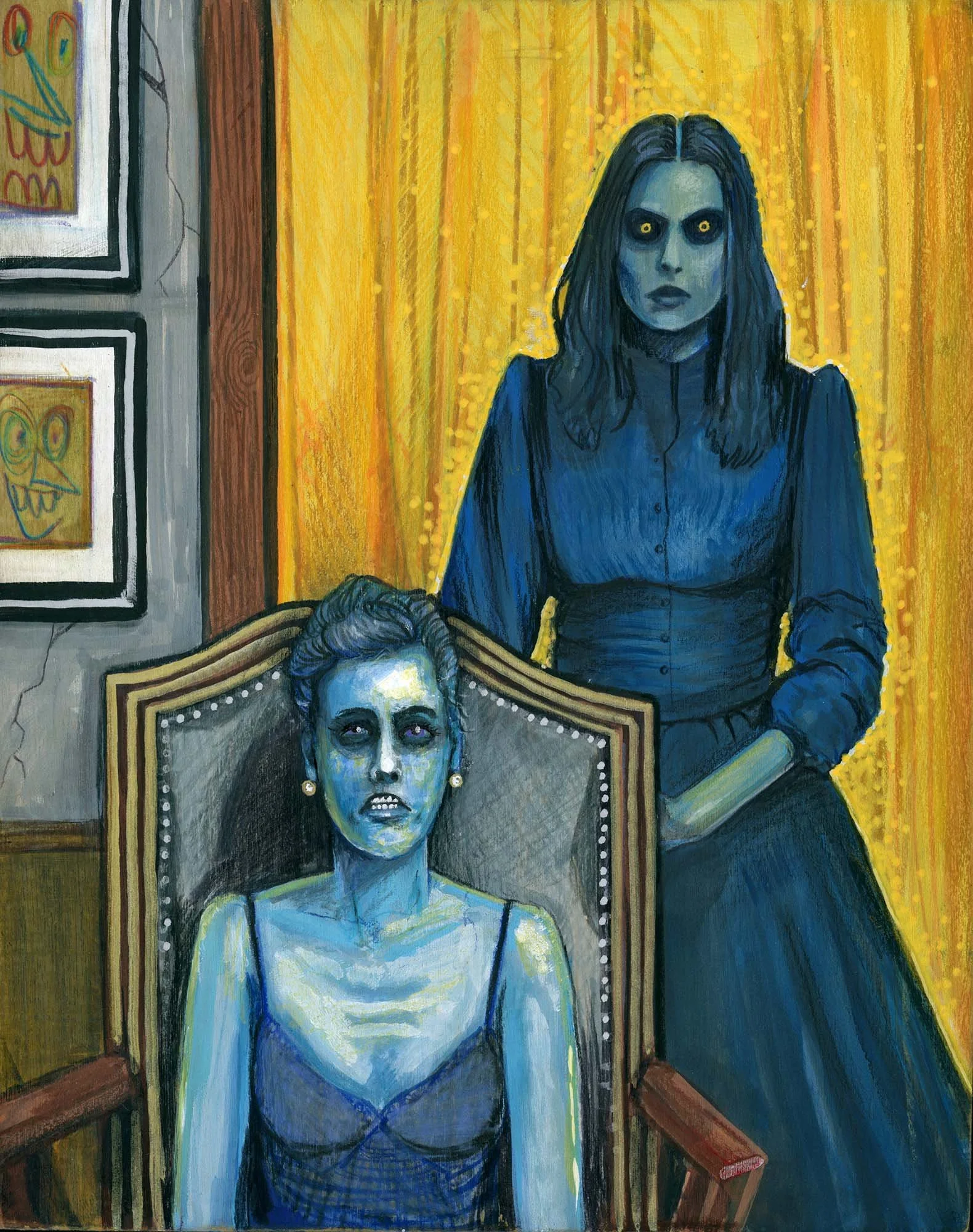 Image 1 of
Image 1 of


Jordan Quintero "Golden Styate Warrior" 8x10 drawing
8x10 pencil and oil pastel drawing on paper mounted on wood panel
Jordan Quintero Bio, 2024 Born San Jose, California, 1981
Currently resides and maintains studio in Colfax, Ca, in the Sierra Nevada foothills.
Quintero’s work spans several decades and many artistic media, but he is best known for his 2-D work, specifically in abstract-figurative oil paintings and mixed-media works on wood panels.
A carpenter by trade, he became an architectural designer in his early thirties following a severe low-back injury, surgery, and subsequent rehabilitation. One can sense the builder and craftsman lurking within his studio artwork—there is a concern for process, materiality, integrity, and form the unites his many (superficially) disparate series and bodies of work.
The passages of strong rendering of illusionistic spaces and deeply considered forms play against the abstract-expressive, emotive mark-making inherited from study of modern & contemporary masters. There is a deep concern in his work for the overarching history of consciousness and humanity, as can be evidenced by his frequent use of indigenous (specifically North & Meso-American) pattern-motif references.
-
“I like the physicality of the process—in order to execute a good painting, it feels like the physical act must be aligned with the spiritual intention. You have to quiet the mind—focus—breathe—have keen awareness and control of the body on an intuitive level. One’s posture and technique, the angles of the limbs and torso, the breath pattern—these all directly translate onto the canvas."
8x10 pencil and oil pastel drawing on paper mounted on wood panel
Jordan Quintero Bio, 2024 Born San Jose, California, 1981
Currently resides and maintains studio in Colfax, Ca, in the Sierra Nevada foothills.
Quintero’s work spans several decades and many artistic media, but he is best known for his 2-D work, specifically in abstract-figurative oil paintings and mixed-media works on wood panels.
A carpenter by trade, he became an architectural designer in his early thirties following a severe low-back injury, surgery, and subsequent rehabilitation. One can sense the builder and craftsman lurking within his studio artwork—there is a concern for process, materiality, integrity, and form the unites his many (superficially) disparate series and bodies of work.
The passages of strong rendering of illusionistic spaces and deeply considered forms play against the abstract-expressive, emotive mark-making inherited from study of modern & contemporary masters. There is a deep concern in his work for the overarching history of consciousness and humanity, as can be evidenced by his frequent use of indigenous (specifically North & Meso-American) pattern-motif references.
-
“I like the physicality of the process—in order to execute a good painting, it feels like the physical act must be aligned with the spiritual intention. You have to quiet the mind—focus—breathe—have keen awareness and control of the body on an intuitive level. One’s posture and technique, the angles of the limbs and torso, the breath pattern—these all directly translate onto the canvas."
8x10 pencil and oil pastel drawing on paper mounted on wood panel
Jordan Quintero Bio, 2024 Born San Jose, California, 1981
Currently resides and maintains studio in Colfax, Ca, in the Sierra Nevada foothills.
Quintero’s work spans several decades and many artistic media, but he is best known for his 2-D work, specifically in abstract-figurative oil paintings and mixed-media works on wood panels.
A carpenter by trade, he became an architectural designer in his early thirties following a severe low-back injury, surgery, and subsequent rehabilitation. One can sense the builder and craftsman lurking within his studio artwork—there is a concern for process, materiality, integrity, and form the unites his many (superficially) disparate series and bodies of work.
The passages of strong rendering of illusionistic spaces and deeply considered forms play against the abstract-expressive, emotive mark-making inherited from study of modern & contemporary masters. There is a deep concern in his work for the overarching history of consciousness and humanity, as can be evidenced by his frequent use of indigenous (specifically North & Meso-American) pattern-motif references.
-
“I like the physicality of the process—in order to execute a good painting, it feels like the physical act must be aligned with the spiritual intention. You have to quiet the mind—focus—breathe—have keen awareness and control of the body on an intuitive level. One’s posture and technique, the angles of the limbs and torso, the breath pattern—these all directly translate onto the canvas."






